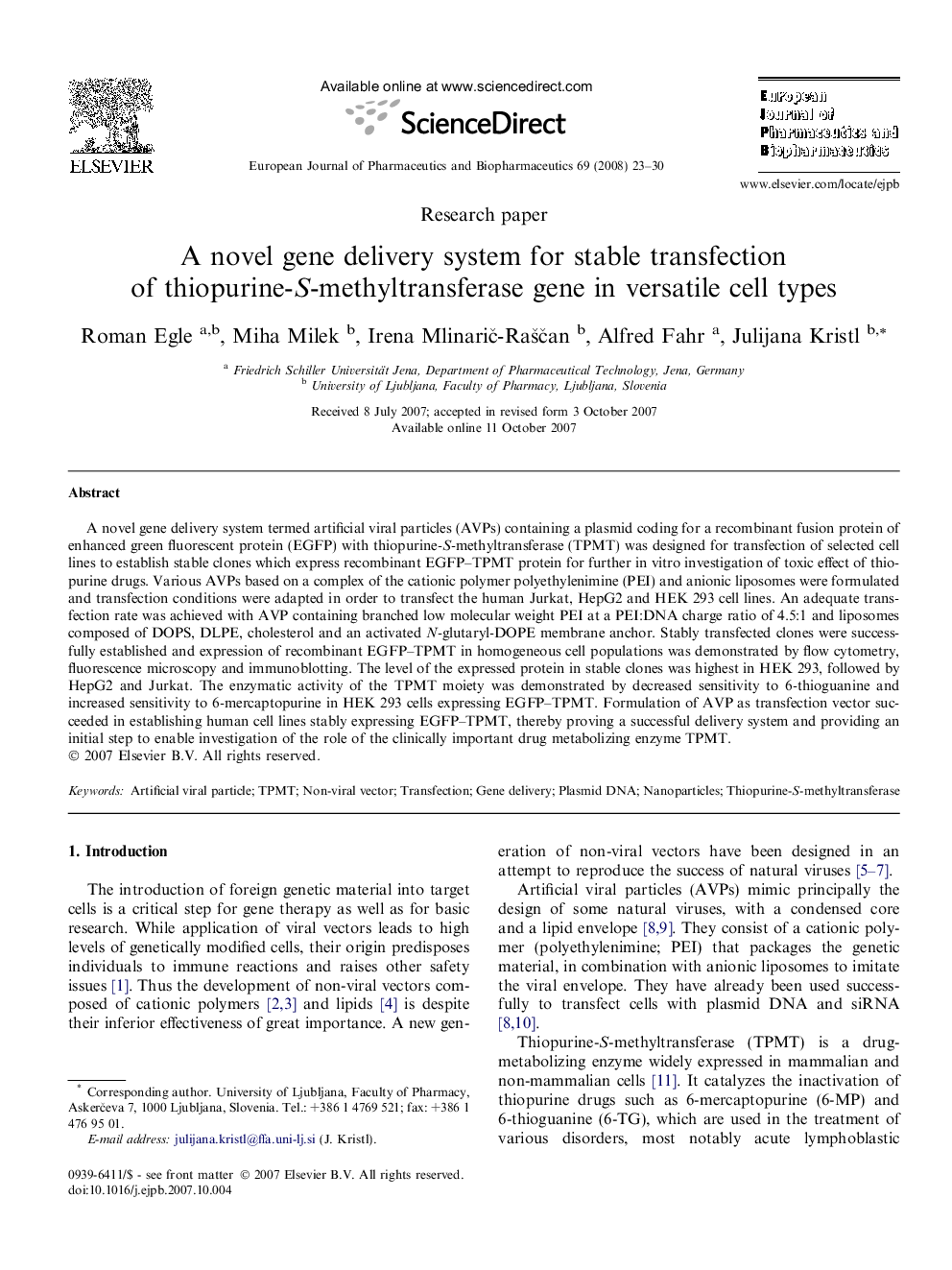| Article ID | Journal | Published Year | Pages | File Type |
|---|---|---|---|---|
| 2084769 | European Journal of Pharmaceutics and Biopharmaceutics | 2008 | 8 Pages |
A novel gene delivery system termed artificial viral particles (AVPs) containing a plasmid coding for a recombinant fusion protein of enhanced green fluorescent protein (EGFP) with thiopurine-S-methyltransferase (TPMT) was designed for transfection of selected cell lines to establish stable clones which express recombinant EGFP–TPMT protein for further in vitro investigation of toxic effect of thiopurine drugs. Various AVPs based on a complex of the cationic polymer polyethylenimine (PEI) and anionic liposomes were formulated and transfection conditions were adapted in order to transfect the human Jurkat, HepG2 and HEK 293 cell lines. An adequate transfection rate was achieved with AVP containing branched low molecular weight PEI at a PEI:DNA charge ratio of 4.5:1 and liposomes composed of DOPS, DLPE, cholesterol and an activated N-glutaryl-DOPE membrane anchor. Stably transfected clones were successfully established and expression of recombinant EGFP–TPMT in homogeneous cell populations was demonstrated by flow cytometry, fluorescence microscopy and immunoblotting. The level of the expressed protein in stable clones was highest in HEK 293, followed by HepG2 and Jurkat. The enzymatic activity of the TPMT moiety was demonstrated by decreased sensitivity to 6-thioguanine and increased sensitivity to 6-mercaptopurine in HEK 293 cells expressing EGFP–TPMT. Formulation of AVP as transfection vector succeeded in establishing human cell lines stably expressing EGFP–TPMT, thereby proving a successful delivery system and providing an initial step to enable investigation of the role of the clinically important drug metabolizing enzyme TPMT.
